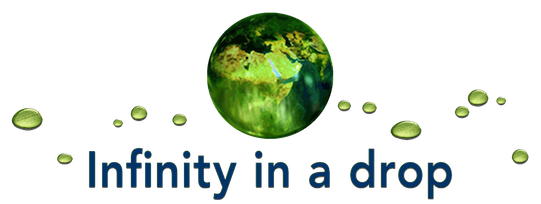

Maintaining a journal
Matthijs Cornelissen
last revision: October 15, 2016
Why maintaining a journal?
Maintaining a diary is widely recommended as something that helps making progress. For this course in Integral Indian psychology there are some additional reasons to do it. The first is, that in Indian psychology one uses one's own nature as an instrument for making psychological observations, and maintaining a diary creates a perfect occasion to train this capacity. A second reason is that we look at our own progress not only as a private, individual project, but also as part of a collective process of evolution. In other words, good self-observations are not only valuable for oneself, but they can also help in theory formation and the development of know-how that's useful for others. Finally, if one maintains one's diary in a systematic manner, it might produce a trail of slow, long term changes that escape notice while happening, but that can provide valuable insights both in one's own nature, and in the more generic processes involved in long term change.
When to write?
In most of us, our short term memory fades surprisingly fast, so it is best to make entries as soon as possible after the psychological events one wants to describe. One can see how often one can manage to do this. During an intensive course on Indian psychology one should do it at least once a day, but more often is better. Good times for making a short entry are immediately after a class, a meditation, a dream, any event of interest. You will see that the sooner one does it, the more details one can collect, and it tends to be the fine details that make the entry interesting. If one doesn't have time to write, one can try find at least a minute or two to be silent and describe it in one's mind for later recall.
As a whole it is strongly recommended to write the diary as if you will be the only one who will read it, ever. This makes it much more easy to be fully honest. One can decide later how much of it one might like to share and with whom.
Adding tags to the diary
It is not essential, but giving a structure to one's diary helps in two ways:
- while writing to remain aware of why one actually writes
- afterwards, to quickly find back all one has written on a certain subject
For example, if one has tagged all relevant passages as "childhood", one can quickly find all what one has written about one's past, or if one has used the tag "tool", one can easily find back all the tricks one has used to help in one's growth.
The tags can be given while writing the diary, but if that disturbs the flow, they can also be added later. You can see how many different tags you want to use. There are arguments for small lists of main categories (say: event, tool, plan, evaluation, overview) as well as for long, or even unlimited lists. It is ok to use different tags for one single passage (for example, "tool" and "silencing the mind"). Below is a longish list of sample tags, but whatever works best for you is fine. Once in a while you may like to go back to the list given here and see if you are inadvertently skipping certain categories while writing your diary. For most people it works best to start with a short list. If a tag gets too many entries, you can always split it later.
The following tags were used by students during the first few IPI courses given on the basis of this outline:- plan, intent, commitment, aspiration, goal
- issue, thing to work on, difficulty, defect, atavism
- potential, thing to develop, opportunity, gift, power, siddhi, goal
- helper (something that helps one’s progress)
- hinderer (something that hinders one’s progress)
- new (eg. development, process, idea)
- shift (eg. in motivation, aim, way of being)
- insight, idea, theory, thought, understanding, hypothesis
- example, illustration, story, image
- tool, process, technique, method
- warning, danger, oops!, action!
- mind, vital, ego, psychic (and other parts of the ppb involved)
- subconscious, superconscious, subliminal (level of consciousness involved)
- question
- letter (e.g. to other, a part of oneself, God)
- complaint, rant, why...?, reflection (on how things are going)
- relationships, work, class, family (and other labels of content)
- poetry (and other labels of format)
- prayer, dialogue, meditation
- experience, or in more detail, eg. synchronicity, vision
- quote, advice, reminder
- summary (written occasionally to summarise how far one has come)
- to do (written down quickly when something to be done later comes up while writing)
- memory (something from the past, still to be given up, surrendered, forgiven?)
- highlight, special, unimportant, trivial, *, **, ***, ****
- kudo (pat on the back)
Whatever you do about the tags, do write your diary, in as much detail as you can manage, and always give the date of the entry!
Individual, yoga-based, first-person mini-projects
The usefulness of the diary gets multiplied many times if combined with an "individual, yoga-based, first-person mini-project".
To receive info on
Indian Psychology and the IPI website,
please enter your name, email, etc.